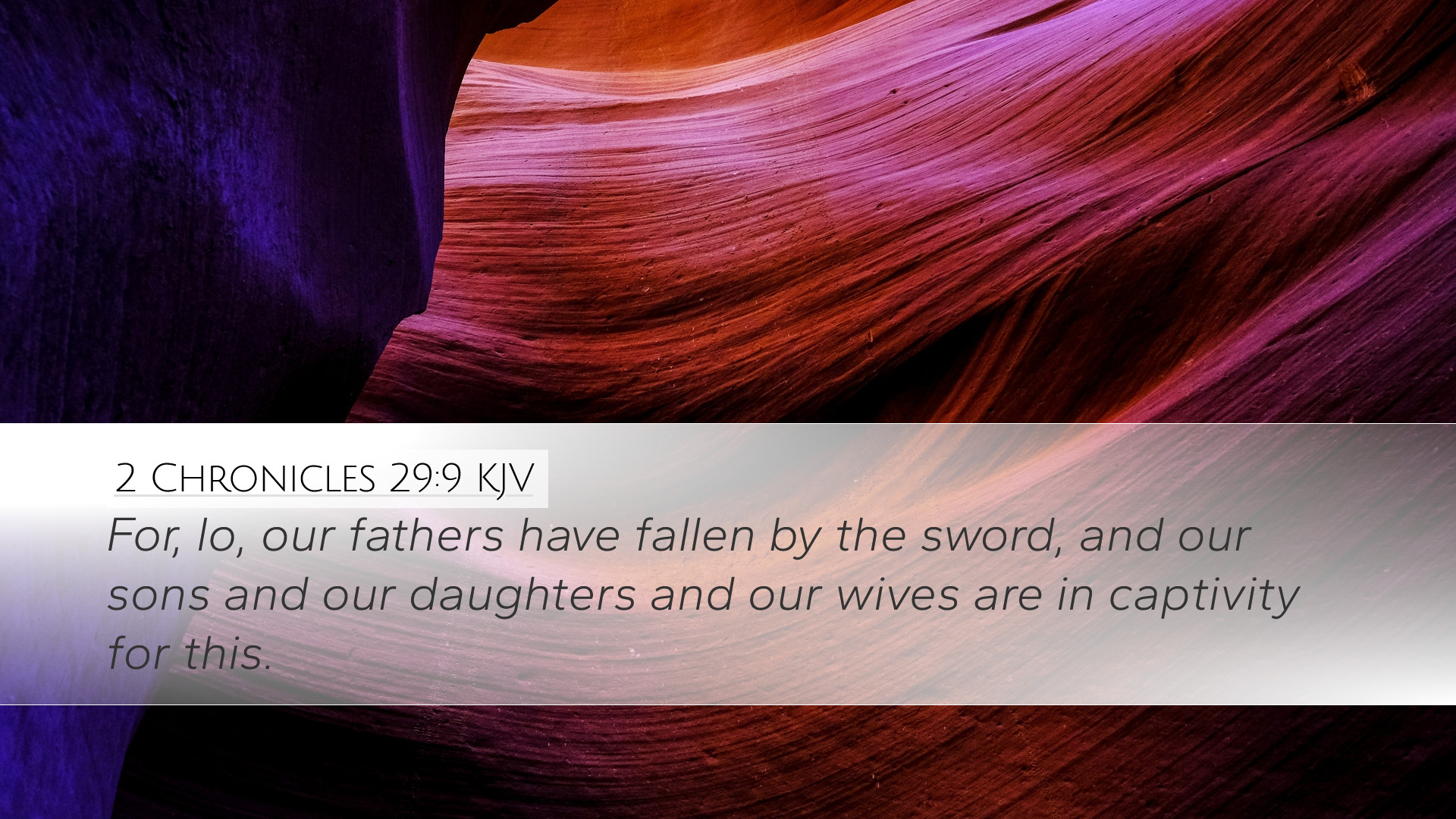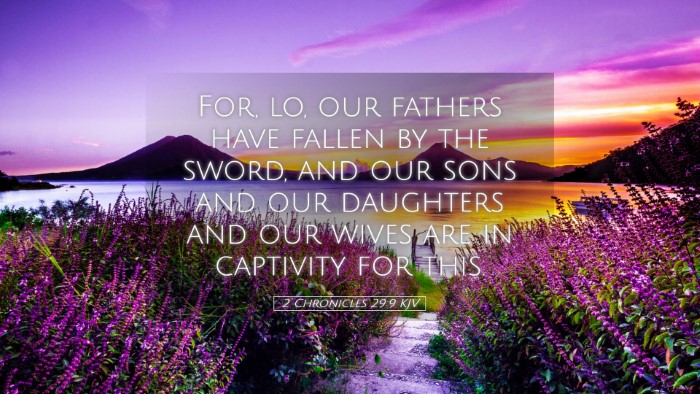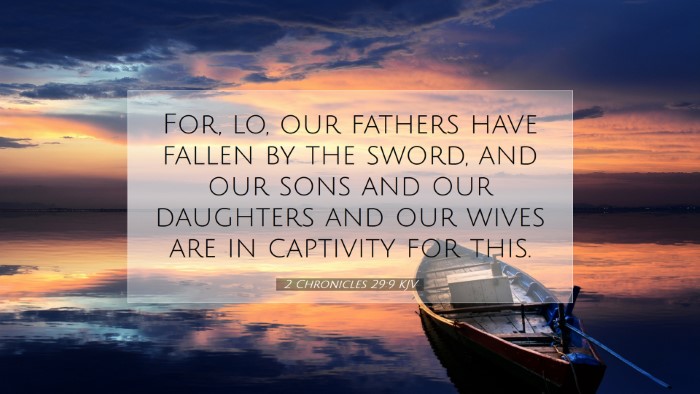Commentary on 2 Chronicles 29:9
Introduction
2 Chronicles 29:9 states, "For, lo, our fathers have fallen by the sword, and our sons and our daughters and our wives are in captivity for this." This verse is part of a significant moment in the reign of King Hezekiah, reflecting on the consequences of previous generations’ disobedience to God. In this commentary, we will explore insights from various public domain sources, drawing from the teachings of Matthew Henry, Albert Barnes, and Adam Clarke.
Historical Context
Understanding the Background
Hezekiah’s reign marked a pivotal time in Judah’s history. Following a period of idolatrous practices and disregard for the covenant with God, Hezekiah was determined to restore true worship in the Temple. This verse reflects the lament of the people regarding the dire consequences they faced due to preceding sins, including military defeat and exile.
-
Matthew Henry emphasizes the moral accountability woven through the fabric of Israel’s history, noting that the calamities faced by the people were directly tied to their collective failure to adhere to God's commands.
-
Albert Barnes elaborates on the weight of the past on the current generation, highlighting that the sins of the fathers had led to their downfall and the subsequent loss of their, "sons and daughters and wives."
-
Adam Clarke provides a deep emotional insight, indicating that the anguish captured in this verse shows the reality of loss and regret for the nation's spiritual failures, symbolizing an urgent plea for restoration.
Theological Implications
Reflections on Sin and Judgment
The mention of "fallen by the sword" serves as a stark reminder of the physical consequences of sin, a theme prevalent in the Bible. This aligns with the concept that God’s judgment is not arbitrary but is based on the choices made by His people.
-
Matthew Henry posits that God's judgments are often delayed to give opportunity for repentance, yet ultimately, sin leads to inevitable consequences, which Judah was now experiencing.
-
Albert Barnes stresses the importance of recognizing previous generations' failures to avoid repeating them, presenting a call to accountability for the present generation.
-
Adam Clarke notes the character of God as both merciful and just, asserting that acknowledging past sins is essential for genuine repentance and restoration.
Application for Today
Lessons for Modern Believers
This verse serves as a poignant reminder for contemporary Christians regarding the impact of collective sin. Each generation carries the responsibility to learn from the lessons of the past, recognizing both the dangers of neglect and the hope of restoration through repentance.
-
Matthew Henry concludes that true revival cannot happen without a sincere acknowledgment of previous transgressions and a concerted effort toward holiness.
-
Albert Barnes encourages believers to yield their lives as instruments of change, advocating for a return to faithful worship and obedience to God's Word.
-
Adam Clarke reminds us of the importance of intercessory prayer, suggesting that modern believers should actively pray for those affected by spiritual disarray in their communities.
Conclusion
The sorrowful acknowledgment in 2 Chronicles 29:9 is not just a historical lament but a call to action for all who bear the name of Christ. By examining the consequences of rebellion against God and the hope for restoration through His mercy, we are invited to renew our commitment to Him, learning from history, and courageously stepping forward in faith.


